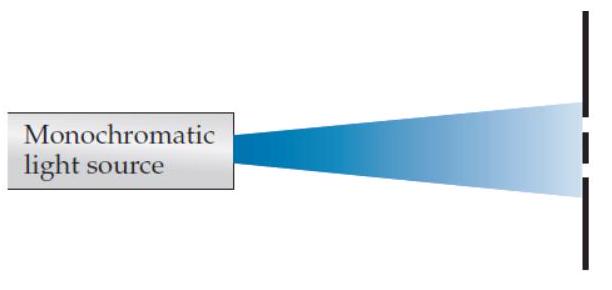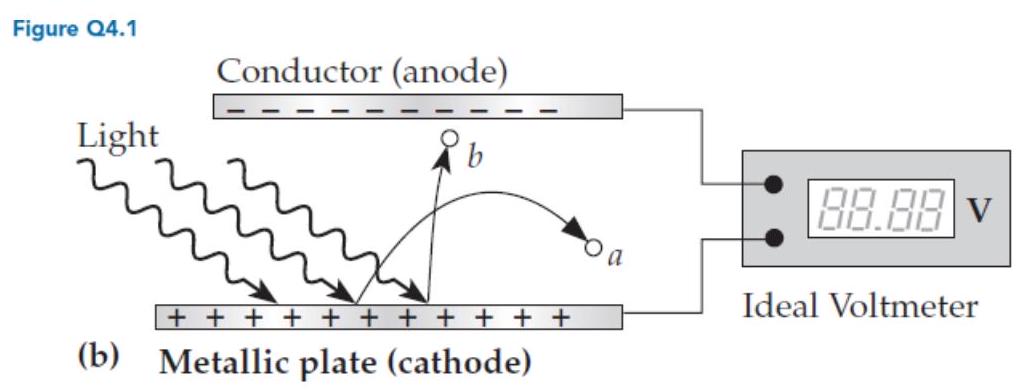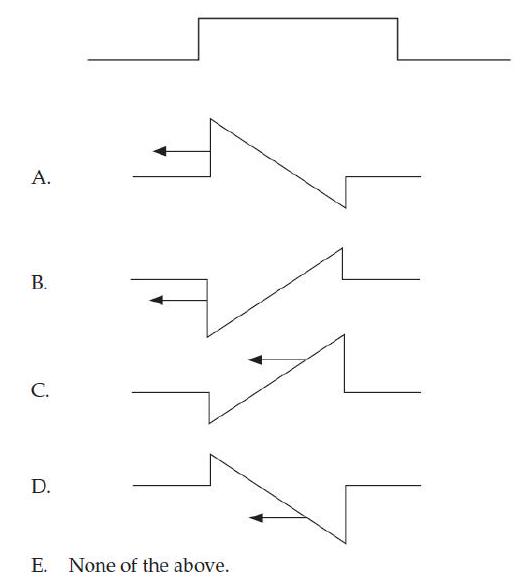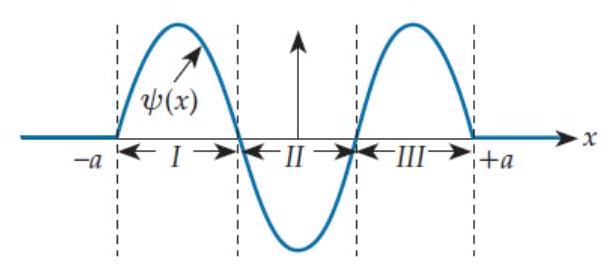Exam 5: Matter Behaves Like Waves Quantum Physics
Exam 1: Conservation Laws Constrain Interactions216 Questions
Exam 2: The Laws of Physics Are Universal Newtonian Mechanics147 Questions
Exam 3: The Laws of Physics Are Frame-Independent Relativity124 Questions
Exam 4: Electricity and Magnetism Are Unified333 Questions
Exam 5: Matter Behaves Like Waves Quantum Physics210 Questions
Exam 6: Some Processes Are Irreversible Thermal Physics151 Questions
Select questions type
Alain Aspect's experiments support the quantum prediction that superluminal connections do exist between measuring devices, connections which in fact violate the special theory of relativity.
(True/False)
4.8/5  (36)
(36)
Consider a two-slit interference experiment like the one shown in figure Q3.7b. The distance between adjacent bright spots in the interference pattern on the screen ,
 -The distance between the slits and the screen increases.
-The distance between the slits and the screen increases.
(Multiple Choice)
4.9/5  (29)
(29)
In the apparatus shown in figure Q4.1b, the final value displayed by the voltmeter is proportional to

(Multiple Choice)
4.7/5  (38)
(38)
We can model a general cyanine-type dye molecule as if it contained electrons trapped in a "box"-like potential energy function, where is some even integer. The energy of a single quanton in a box is given by , where is an integer and is the energy of the ground energy level. If for a given molecule there are four electrons trapped in the molecule's "box," what is the lowest possible total energy of those electrons?
(Multiple Choice)
4.9/5  (39)
(39)
Waves from two slits and will destructively interfere and cancel at a point if the distance between and is larger than the distance between and by
(Multiple Choice)
4.9/5  (31)
(31)
The EPR argument assumes which of the following to conclude that quantum mechanics is incomplete?
(Multiple Choice)
4.9/5  (33)
(33)
Consider the right-going wave and the possible left-going waves displayed in problem Q2T.3. For which of the choices will there be an instant where the combined wave is a rectangular wave as shown below?

(Multiple Choice)
4.9/5  (36)
(36)
, which has an atomic mass of decays with a half-life of to , which has an atomic mass of . Does this likely decay by a process (B), or must it decay by electron capture
(Multiple Choice)
4.7/5  (33)
(33)
Imagine we have an adjustable slit that we can make wider or narrower. If we shine light of a fixed intensity on the slit, and then crank the slit so its width decreases (while keeping other things the same), will the light at the center of the central peak on the display screen?
(Multiple Choice)
4.8/5  (32)
(32)
Suppose we create a traveling compression wave in a spring that has one end fixed. When the wave reflects from the fixed end, it will be inverted (that is, compression will become rarefaction and vice versa).
(True/False)
4.8/5  (40)
(40)
A tilted top that is spinning clockwise (when viewed from above) experiences a torque that is always horizontal and perpendicular to the top's angular momentum. If initially the top's axis of rotation leans somewhat to the viewer's right and the torque points toward the viewer, how will the top's axis of rotation precess around the vertical direction?
(Multiple Choice)
4.8/5  (39)
(39)
In a specific non-dispersive medium, a sinusoidal wave's period is proportional to its wavelength.
(True/False)
4.7/5  (39)
(39)
Imagine that the energy levels of a certain system are proportional to , where Imagine that for some reason, only transitions such that are physically possible. In a spectrum chart (like the one shown in figure Q11.2) the emission lines produced by this system

(Multiple Choice)
4.8/5  (47)
(47)
A quanton is in a situation where its potential energy decreases to the right. As we go to the right, the wavelength of its energy eigen function
(Multiple Choice)
4.8/5  (29)
(29)
Consider an electron in a hydrogen atom. How does the wavelength of an energy eigen function (as measured around the circular band) depend on the energy associated with that eigen function?
(Multiple Choice)
4.7/5  (47)
(47)
Suppose that at a certain instant of time, the wavefunction shown below describes a certain quanton's state.
 The function is zero for and sinusoidal with a constant amplitude for . If we were to perform an experiment to locate the quanton, within which of the ranges above would we be most likely to find it?
The function is zero for and sinusoidal with a constant amplitude for . If we were to perform an experiment to locate the quanton, within which of the ranges above would we be most likely to find it?
(Multiple Choice)
4.8/5  (30)
(30)
Suppose we have a quantum system of an unknown type. We find that a certain amount of energy moves this system from its lowest possible energy to its second-lowest energy, but is required to get it to its next higher energy. Is this quantum system a quanton in a box, a hydrogen atom, or a simple harmonic oscillator?
(Multiple Choice)
5.0/5  (39)
(39)
Eagles and other predatory birds have very sharp eyesight. The pupil of an eagle's eye is roughly twice the size of a human's under similar (daylight) conditions. A friend claims to have read that an eagle's eye has 8 times the resolving power of a human eye in broad daylight. This is physically impossible.
(True/False)
5.0/5  (40)
(40)
Imagine that sound waves with a certain definite wavelength flow through a partially open sliding door. If the wavelength of the waves increases, the angle through which the sound waves are diffracted
(Multiple Choice)
4.8/5  (35)
(35)
Showing 41 - 60 of 210
Filters
- Essay(0)
- Multiple Choice(0)
- Short Answer(0)
- True False(0)
- Matching(0)